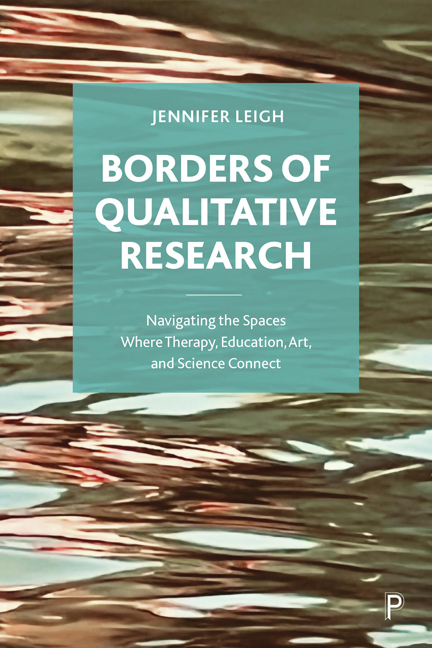 Borders of Qualitative Research
Borders of Qualitative Research Lesson 3 - Relationship
Published online by Cambridge University Press: 28 March 2024
Summary
The vast majority of qualitative research involves others; as participants, cocreators, or audience. Leaving aside audiences for now, when a qualitative researcher is working with participants or co-creators and wants to elicit data or engage, they have to form a relationship with them. The same is true for educators when they educate others, and for artists who work with or for community groups. However, it is therapists who receive training on how to form, build, and contain relationships with a specific intent. This lesson draws on psychotherapy to understand the constituents of a therapeutic encounter or relationship, so researchers, educators, and artists might better understand the encounters they have and the relationships they form with their participants, students, or co-creators.
The purpose of psychotherapy
Psychotherapeutic approaches are intended to allow others (clients) to share and explore their stories with trained therapists so that they can process their experiences and heal. As such, psychotherapists undergo specific training to support their work and development as a therapist. While these trainings vary in length and content depending on the specific nature of the psychotherapeutic approach, they would all cover similar general principles in order to adhere to the guidelines and codes set by the professional bodies in their country (examples of these are the Standards of Conduct, Performance and Ethics set out by the UK Health and Care Professions Council; Codes of Ethics and Conduct from the British Psychological Society; Ethical Principles of Psychologists and Code of Conduct from the American Psychological Association; the Association of Family Therapy Code of Ethics and Practice; and similar codes set by various bodies including the UK Council for Psychotherapy and the British Association for Counselling and Psychotherapy). These codes all include practical ways of engaging and building a relationship with a client, establishing trust, boundaries, and creating an environment in which the client is happy to share personal and often emotional stories and the therapist is working to strict professional ethics to safeguard their own safety and that of their client. The purpose of therapeutic training is to build and facilitate the natural skills of the therapist (Budd et al 2020).
- Type
- Chapter
- Information
- Borders of Qualitative ResearchNavigating the Spaces Where Therapy, Education, Art, and Science Connect, pp. 63 - 86Publisher: Bristol University PressPrint publication year: 2023


